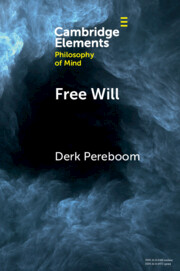Element contents
Free Will
Published online by Cambridge University Press: 07 February 2022
Summary
- Type
- Element
- Information
- Series: Elements in Philosophy of MindOnline ISBN: 9781108982511Publisher: Cambridge University PressPrint publication: 24 February 2022
References
- 6
- Cited by



